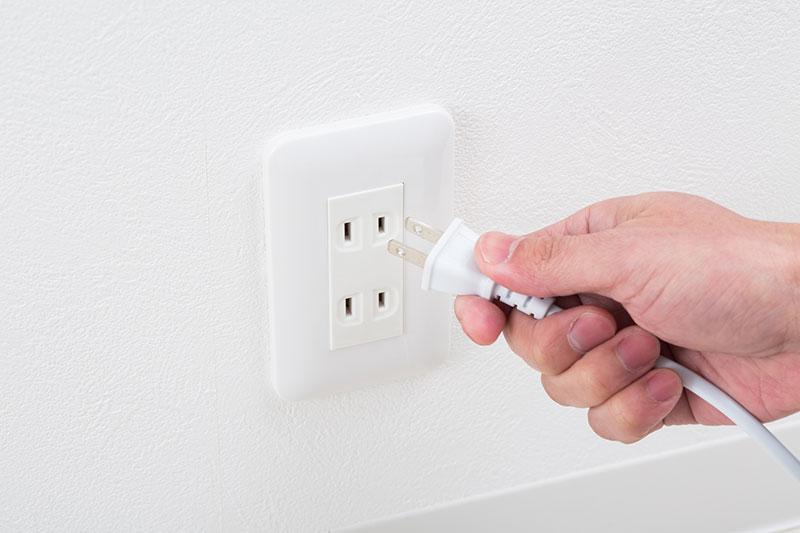Introduction
Electric shock is one of those things that we all know can be dangerous, but we don’t really think about it until it happens to us. It’s a jolt of electricity that can cause burns, muscle spasms, and even death. While most people who survive an electric shock will recover completely, there are some cases where the person will experience long-term damage. In this blog post, we will explore some of the possible long-term effects of electric shock and what you can do if you or someone you know has experienced it.
What is electric shock?
When an electrical current passes through the body, it is called an electric shock. The severity of the shock depends on the amount of current, how long it flows, and where it flows through the body. A shock from a small household current may cause only a tingling sensation, while a more powerful jolt can cause burns and even death. Everywhere that has electricity a possibility of electric shock is present, even at your clinic you can be electrocuted at the dentist.
There are two types of electric shocks: direct and alternating current (AC). Direct current (DC) flows in one direction, while AC alternates its direction. DC is found in batteries and some electronic devices, while AC is found in most electrical outlets. Both types of shocks can cause serious damage to the body.
If you receive an electric shock, it is important to seek medical attention immediately, even if you do not feel any pain. It can cause internal bleeding and organ damage, even if there are no visible signs of injury. If you suspect that someone has received an electric shock, call 9-1-1 or your local emergency number right away.
Short-term effects
When someone is electrocuted, or suffers an electric shock, the body is overwhelmed with electricity. This can cause immediate and severe damage, including burns, muscle spasms, and respiratory problems. In some cases, it can lead to cardiac arrest and death.
The severity of the damage depends on the amount of electricity that flows through the body, the length of time that the person is exposed to it, and other factors. Even a small amount of electricity can cause serious damage if it hits the right spot, such as the heart or brain.
Most people who survive an electric shock will have some long-term effects. These can include joint and muscle pain, nerve damage, memory problems, fatigue, anxiety, and depression. Some people also experience ringing in their ears (tinnitus), changes in their vision, or trouble sleeping (insomnia).
Long-term effects
When it comes to the long-term effects of electric shock, there is unfortunately no clear consensus. Some sources suggest that there may be no long-term effects at all, while others claim that it can lead to a variety of serious health problems down the line.
For example, one study published in the journal “Occupational and Environmental Medicine” found that it was associated with an increased risk of Parkinson’s disease. However, it’s important to note that this study only looked at a small group of people and further research is needed to confirm these findings.
Other potential long-term effects of electric shock include memory problems, anxiety, depression, and chronic pain. again, more research is needed to determine how common these problems are in people who have survived an electric shock.
If you or someone you know has experienced an electric shock, it’s important to seek medical attention right away. Once the immediate dangers have been taken care of, you can discuss any long-term concerns with your doctor and develop a plan for managing them.
How to avoid electric shock
When you experience an electrical shock, the electricity flows through your body causing burns and other damage. There are four main types of electric shocks: low voltage, high voltage, alternating current (AC), and direct current (DC).
You can avoid electric shock by following these safety tips:
-Stay clear of downed power lines. Assume that any downed line is live and dangerous. Do not try to move it or drive over it. Call your local utility company immediately to report the hazard and remember to trust only a professional residential electrician.
-Keep your feet dry. Wet feet or shoes conduct electricity much better than dry ones do. If you must work near water, wear rubber boots.
-Use proper extension cords. Do not use frayed or damaged cords, and make sure the cord is rated for the wattage of the appliance you are using. Do not overload outlets by plugging in too many appliances.
-Unplug appliances before cleaning them. Water and electricity do not mix! Also, unplug an appliance before you disconnect any wires from it.
Conclusion
While electric shock can certainly be a harrowing experience, it is important to remember that the vast majority of people who survive an electric shock will not suffer any long-term damage. However, there are some potential risks associated with it, so it is always best to seek medical attention as soon as possible after an accident but prevention is best when it comes to electrical dangers. If you or someone you know has been involved in an electric shock accident, hopefully this article has provided some useful information on what to expect and how to minimize the risk of long-term damage.

